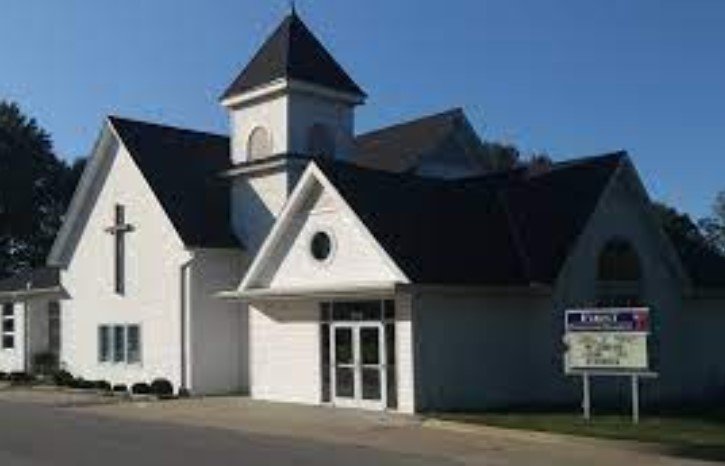Finding the right denominational church is an important step in your spiritual journey. The right church can provide a supportive community, help you grow in your faith, and align with your personal beliefs and values. Here’s a guide to help you choose a denominational church that fits you best.

1. Understand Your Beliefs and Values
Before you start looking for a church, it’s important to understand your own beliefs and values. This will help you find a church that aligns with your spiritual goals and doctrinal preferences.
Steps to Clarify Your Beliefs:
- Reflect on Your Faith: Think about your core beliefs, values, and spiritual goals.
- Identify Doctrinal Preferences: Consider theological doctrines and practices that are important to you.
- Evaluate Worship Style: Determine what style of worship resonates with you, whether traditional, contemporary, or a mix.
Tip: Make a list of your key beliefs and values to use as a reference when evaluating different churches.
2. Research Different Denominations
Denominations often have distinct beliefs, practices, and traditions. Researching various denominations can help you understand their core doctrines and find one that aligns with your spiritual needs.
Steps for Research:
- Learn About Denominations: Study the beliefs, practices, and history of different denominations.
- Explore Church Websites: Visit church websites to read about their missions, beliefs, and worship styles.
- Read Reviews and Testimonials: Look for reviews or testimonials from current or former members.
Tip: Take note of any denominational distinctives that are particularly appealing or unappealing to you.
3. Visit Churches in Your Area
Once you have a list of potential denominations, visit churches in your area to experience their worship services and community life. This will give you a better sense of what each church is like in practice.
Steps to Visit Churches:
- Attend Services: Go to worship services to observe the teaching, music, and overall atmosphere.
- Participate in Activities: Join church events, Bible studies, or social gatherings to meet members and see how the church functions.
- Talk to Members: Engage with current members to learn about their experiences and perspectives.
Tip: Visit several churches to get a well-rounded view of your options and compare your experiences.
4. Evaluate Community and Fellowship
A strong sense of community and fellowship is crucial for a fulfilling church experience. Assess how welcoming and supportive the church community feels during your visits.
Steps to Evaluate Community:
- Observe Interactions: Watch how members interact with each other and newcomers.
- Join Small Groups: Participate in small group activities to experience the community on a more personal level.
- Check Support Systems: Look for programs that support members’ spiritual and practical needs.
Tip: Seek a church where you feel comfortable and where relationships can be developed over time.
5. Consider Church Leadership and Teaching
The quality of teaching and the leadership of the church are important factors to consider. Look for a church with leaders who are knowledgeable, approachable, and aligned with your theological preferences.
Steps to Evaluate Leadership:
- Listen to Sermons: Pay attention to the sermons and teaching for doctrinal soundness and relevance.
- Meet with Leaders: Request a meeting with the pastor or church leaders to discuss their vision and approach.
- Assess Leadership Style: Consider whether the leadership style aligns with your expectations and values.
Tip: Choose a church where the leadership inspires and challenges you in your faith journey.
6. Review Church Programs and Ministries
Church programs and ministries can greatly impact your experience and involvement. Look for a church that offers programs that align with your interests and spiritual needs.
Steps to Review Programs:
- Explore Offerings: Check the church’s website or bulletin for information on programs, classes, and ministries.
- Attend Events: Participate in events to see how they align with your interests and spiritual growth.
- Evaluate Involvement Opportunities: Consider how easy it is to get involved and contribute to the church’s mission.
Tip: Choose a church that provides opportunities for growth and service in areas that matter to you.
7. Reflect on Personal Comfort and Fit
Finally, reflect on how comfortable you feel with the church and whether it feels like a good fit for you. Personal comfort and alignment with your spiritual goals are key to a positive church experience.
Steps to Reflect:
- Assess Your Comfort Level: Consider how welcomed and supported you feel within the church community.
- Evaluate Alignment: Ensure that the church’s teachings, values, and programs align with your personal beliefs and goals.
- Trust Your Instincts: Listen to your feelings about the church and whether it feels like the right place for you.
Tip: Take your time making a decision and trust your instincts to find a church where you can grow and thrive.
Conclusion
Choosing the right denominational church involves understanding your own beliefs, researching different denominations, and visiting churches to find the best fit. By evaluating community, leadership, programs, and personal comfort, you can make an informed decision and find a church that supports your spiritual journey. Embrace the process and trust that you’ll find a church where you can grow in faith and connect with others.











